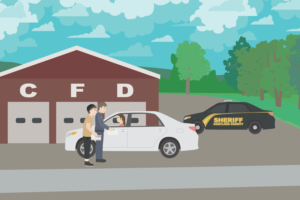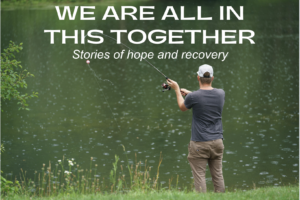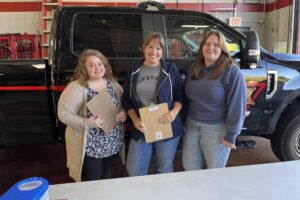SUNY Cortland Students Share Their Experience Working with Healing Cortland
During the Spring 2021 semester, SUNY Cortland students in Professor Kelechi Ibe-Lamberts’ Community Health class were provided the opportunity to work with organizations on campus and in the community. Three of these students, Jasmilka Pena, Treasa Kozakiewicz, and Leighann Sepulveda were assigned to work with the team at Healing Cortland. They wrote this article to share their experience working with us.
At Healing Cortland, we were introduced to the Project Director, Sara Watrous along with the Data Coordinator, Travis Young, and the Outreach Coordinator, Jackie Allen. Throughout the first few group meetings, we learned about Healing Cortland’s goals to reduce opioid overdose deaths and the risk factors associated with opioid use. Being only slightly aware of the problem, we were surprised to learn about the issue of opioid addiction and overdose in Cortland County, and that it is not only a issue locally, but nationally as well. We were tasked with looking into the role that stigma plays and how it manifests itself in news and other writing.
After investigating both local and national media publications, we found how common it is for people with substance use disorders to be described as “druggies,” “addicts,” and “junkies.” The use of terms like these showed us how there are existing stereotypes and negative attitudes surrounding those who use opioids. Having these negative attitudes in the media only reinforces these perceptions in real life, as audiences are encouraged to use them. Not only does the media stimulate this trend but health care professionals in the medical field and police officers in law enforcement do as well.
Because they are defined by the drugs they use, people struggling with opioid addiction are seen more as criminals than as human beings. But people don’t voluntarily choose to become addicted.
Our main take away from this project: People who struggle with substance use are humans! In some cases, emotional and mental issues lead people to use drugs as a coping mechanism. Often people become physiologically dependent when that was never their intention. By reducing stigma, we acknowledge this and support individuals in a way that can increase their willingness to seek treatment.
Working with Healing Cortland taught us we need to be more aware of the struggles people with substance use disorders experience every day. To start showing this understanding, we can integrate more first-person language and non-stigmatizing terms into our everyday conversations.
To more directly help prevention opioid overdoses, we also learned about the importance of naloxone (Narcan). Some of the partners involved in Healing Cortland hold regular Narcan trainings where community members can learn how to administer naloxone, a medication that counters the effects of opioid overdose and saves the life of someone overdosing.
Overall, we had an amazing experience at Healing Cortland and hope to share and spread awareness of not only the opioid overdose problem but also the work of small organizations like these.





